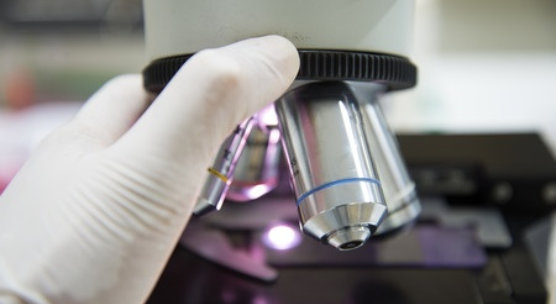Wellcome funding boost for Dundee scientists
Published On Wed 19 Apr 2017 by Roddy Isles

University of Dundee scientists have won a hat-trick of funding awards from the Wellcome Trust that will see more than £6million invested in their research.
Professors Doreen Cantrell, Mark Field and Grahame Hardie, all based in the School of Life Sciences at the University, have been successful in winning grants from Wellcome.
“I am delighted to see our scientists continuing to win these very competitive awards, which are supporting world-class research at Dundee,” said Professor Julian Blow, Dean of the School of Life Sciences. “We have a long and proud record of working with Wellcome and turning their support into research that has a real impact in understanding, and ultimately treating, human and animal diseases.”
Professor Cantrell has been awarded a Principal Research Fellowship worth almost £4million over the next five years to explore the mechanisms that control the behaviour and function of cytotoxic T lymphocytes.
These white blood cells have an essential job to kill virus infected cells and cancer cells. When the activity of T cells is not correctly balanced the immune system fails: excess stimulation results in autoimmunity whereas insufficient T cell activity causes immune deficiencies. Professor Cantrell’s program of work will explore how the T cell nutrient and oxygen environment controls signaling pathways of communication inside lymphocytes signals. This work will generate the information about the mechanisms that control T cell function that is required to identify new drug targets for therapeutic intervention in the immune system.
Professor Field has been given a Wellcome Investigator Award of £1.4million. His research is focused on understanding the dynamics of the surface of trypanosomes, pathogenic protozoa that cause a range of human and animal diseases. Professor Field and his team will focus on the biology of key determinants that have roles in drug uptake mechanisms, to understand the biology that underpins these processes as well as to investigate these systems can be exploited for delivery of novel therapeutics.
Professor Hardie has also been given a Wellcome Investigator Award, worth £1.26million. It will allow him and his group to continue to study the AMP-activated protein kinase (AMPK) system, which he has previously shown to monitor the energy status of cells, analogous to the system in a mobile phone that monitors the battery charge. Recent findings from the research team suggest that AMPK may also be able to sense the availability of certain nutrients, such as glucose, glycogen and perhaps others, which may have been its ancestral function in early eukaryotes.
In addition, Professor Hardie is examining why some isoforms of AMPK experience loss-of-function mutations in human cancers, whereas with other isoforms the opposite can happen, i.e. the genes are amplified. Understanding this paradox may lead to new treatments for cancer that would enhance the effects of conventional cytotoxic therapies, thus reducing their adverse side effects.
Professor Hardie said, “I am hugely grateful to the Wellcome Trust, who have been supporting my research on AMPK since 1989.”
Notes to Editors
The School of Life Sciences at the University of Dundee hosts around 900 staff from over 60 different countries and is one of the fastest growing and most productive research centres in Europe.
Dundee is the top ranked university in the UK for biological sciences research, according to the last Research Excellence Framework (2014)
Dundee is also one of the world’s Top 200 universities and The Times & Sunday Times Scottish University of the Year for two years running. www.dundee.ac.uk
For media enquiries contact:
Roddy Isles
Head of Corporate Communications
University of Dundee
Nethergate, Dundee, DD1 4HN
Tel: +44 (0)1382 384910
Mobile: 07800 581902
Email: r.isles@dundee.ac.uk